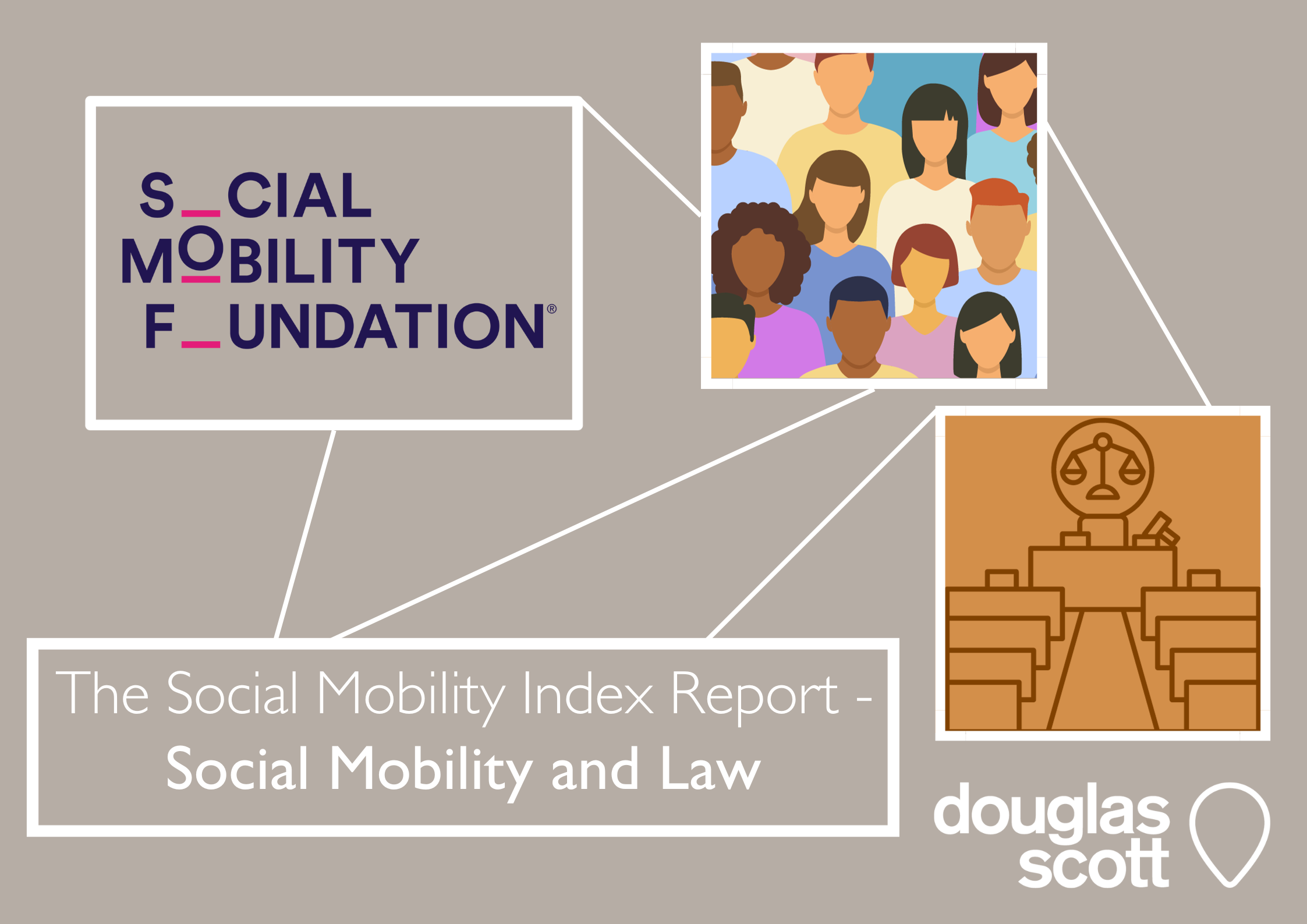Social Mobility and Law – The Social Mobility Index Report
Posted in Latest News on 9 Nov 2023

Recently, we at Douglas Scott published an article on the Diversity of the Judiciary report from the Ministry of Justice—one of the major areas that the report identified as needing addressing was social mobility.
Just last week, however, the Social Mobility Foundation published its annual Social Mobility Employers Index, which may shed a different light on law firms and their efforts to hire people from a diverse range of socioeconomic backgrounds. Forty-one law firms made up the top 75, including 4 in the top 10, which is a hugely impressive achievement. So, are law firms taking the lead on mobilising a new generation of workers?
Social mobility is seen as hugely important, especially in attempts to increase opportunities for those from non-traditional backgrounds. The Social Mobility Index found that a child born in a low-income family in the United Kingdom in 2023 only has a 1 in 8 chance of progressing to a high-income earner as an adult. Coupled with the challenging situations that the market has been facing over the past few years, and it feels like the attainment gap is widening. However, these results may be a welcome relief to the legal sector, traditionally seen as an elite institution and inaccessible for many young people. The firms on the list are huge players in the industry: Browne Jacobson is a major national firm, while Linklaters and Allen & Overy (which placed sixth and seventh respectively) are both Magic Circle firms. So, it’s clear that firms at the top of the legal industry want to make a change. What the report doesn’t detail, however, is what roles people are in from these backgrounds: because the report covers all types of companies across the UK, there’s no point of comparison specifically for legal roles. It would be interesting to see what roles people are in and what that might say about what firms are doing to improve their social mobility.
Tying into this, the Law Society recently published some advice about how firms can improve their social mobility:
- Measure: First, look at your existing workforce and gather information on their socio-economic background. The question “What was the occupation of your main household earner when you were aged 14?” is a common one.
- Comparison: The SRA has data you can look at to see how your firm compares to others in your sector or region.
- Planning: Once you have the data from your employees and you’ve compared it to other firms, you can then start looking to make improvements. There are several approaches you can take to do this: modifying your culture and leadership, outreach to organisations that specialise in this area, ensuring recruitment is based on skills and potential, making sure that progression opportunities are open to everyone, and advocating for social mobility as part of your business plan.
Social mobility is an area many sectors of the UK economy need to improve on. Hopefully, as initiatives that law firms are putting in place bed in, the statistics in the Ministry of Justice’s diversity report will improve. However, these new findings are welcome news, and we will continue to monitor these findings here at Douglas Scott.